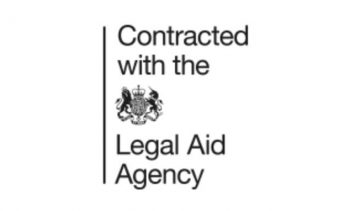At Adel Jibs & Co Solicitors, we understand the emotional turmoil and legal complexities that come with being served a non-molestation order. If you find yourself in this situation, you may be wondering, “Can you contest a non-molestation order?” The answer is yes, and our experienced family law solicitors are here to guide you through the process and help you understand your legal rights.
What is a Non-Molestation Order?
A non-molestation order is a legal injunction issued under the Family Law Act of 1996. It is designed to protect an individual from harassment, threats, or violence by preventing the respondent from communicating with the applicant or entering their home. Non-molestation orders are commonly used in cases of domestic abuse where there has been a history of abusive behaviour.
Can You Contest a Non-Molestation Order? Exploring Your Options
If you believe that the allegations made against you are unfounded or that there is insufficient evidence to support the implementation of a non-molestation order, you have the right to challenge it. Can you contest a non-molestation order? Yes, and there are two primary courses of action:
1. Not oppose the order but also not agree to give an undertaking, on the basis that you do not accept the claims made against you.
2. Actively oppose the order and work to prove that the applicant’s allegations are false or unsubstantiated.
When considering the question, “Can you contest a non-molestation order?” it’s essential to have a knowledgeable legal team on your side.
At Adel Jibs & Co Solicitors, our family law experts will work diligently to gather the necessary evidence to build a robust case in your defence. This may include collecting documentary evidence from medical records or police files, as well as obtaining witness statements to support your position.
It’s important to remember that in order to successfully contest a non-molestation order, the case must be proven on a balance of probabilities.
Protecting Your Rights: Taking Action When Served a Non-Molestation Order
When a non-molestation order is issued against you, the court will schedule a hearing within 14 days.
This hearing presents an opportunity for you to respond to the allegations and challenge the order. If you’re wondering, “Can you contest a non-molestation order?” the answer is yes, but it’s vital to seek legal advice as quickly as possible to ensure that your rights are protected.
At Adel Jibs & Co Solicitors, we are dedicated to providing personalised and effective legal solutions for our clients throughout London.
Our family law solicitors, located in Enfield possess the knowledge and experience necessary to navigate the complexities of contesting a non-molestation order.
When you come to us asking, “Can you contest a non-molestation order?” we will work tirelessly to help you understand your options and develop a strategy to achieve the best possible outcome.
Don’t hesitate to take action if you’ve been served a non-molestation order. Contact Adel Jibs & Co Solicitors today to schedule an initial consultation and begin the process of challenging the order.
Call us at 02034173859 or complete our online enquiry form, and a member of our dedicated team will promptly reach out to discuss your situation and answer any questions you may have about contesting a non-molestation order.
It’s crucial to note that even if you decide to contest the order, you must adhere to its terms until a decision is reached by the court.
Trust the experienced family law solicitors at Adel Jibs & Co to provide the guidance and support you need throughout this challenging process.


